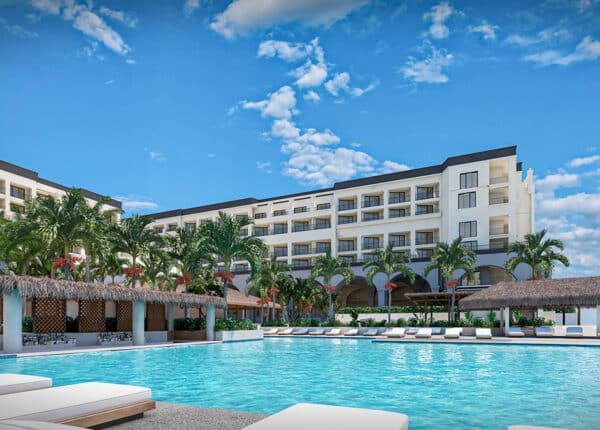By Dennis Chung
CJ Contributor
Earlier this week I attended a forum and was asked to answer some questions from the audience. The forum was about entrepreneurship and one person, an entrepreneur himself, addressed the audience and encouraged everyone that they should buy Jamaican products in preference to imported ones and criticized the Jamaican branded companies that actually manufacture their products abroad, while everyone believed that they were 100 percent Jamaican made products.
You will recall that a recent news report identified products from two well known Jamaican companies as made primarily in other countries and branded as products of the Jamaican companies, and it to this that the reference was made.
The meeting was addressing young entrepreneurs and therefore I felt compelled to respond to the statement about the need for us to buy Jamaican always in preference to imported products.
I made the point to the young entrepreneurs that I do not want them to walk away with the view that we should buy a product just because it is 100 percent made in Jamaica, as what we could end up doing is supporting inefficiency and this could result in us continuing to underachieve as a country. I went on to say that in fact, up until the early 1990s, when the economy was liberalized, Jamaica actually did have a buy Jamaica campaign. This was well voiced in the 1970s, and continued in the 1980s, not as a campaign, but rather in the form of tarifs that protected Jamaican goods. In other words, we forced persons to buy Jamaican goods by establishing trade barriers and foreign exchange controls to ensure that we kept as much money as possible in Jamaica and spent on Jamaican produce.
Another country that has done that, whether by their own design or the US embargo, is Cuba. The question we must therefore ask ourselves is, has Jamaica benefitted from the Buy Jamaica campaign in the 1970s and protectionist policies up to the 1990s. I clearly remember that we were only allowed to take out US$50 up to the early 1990s, when we were traveling, and all it did in my view was to create cheats of persons who were caught trying to take more than US$50 out of the country. I have not seen any lasting positive economic results from that era.
The point to be made is that if we are to promote the idea that we should buy a product just because it has 100 percent Jamaican input, in preference to one with 30 per cent Jamaican input then we could actually be doing ourselves a disservice by promoting low productivity and inefficiency. And this is a very important point for us to understand as a country.
Instead I advised the young entrepreneurs there that they should not expect that their produce will be bought just because its Jamaican, but rather because it is of the highest world standard. To otherwise expect that your product will be bought by a Jamaican just because it is made 100 per cent in Jamaica is to expect patronage.
I, for example, do believe that we should buy Jamaican produce and services and do prefer to buy some Jamaican products to imported ones. But my choice is not based on the fact that they are 100 per cent Jamaican produce but because the Jamaican products I buy I think are superior to the foreign ones.
I think of Jamaican brands like Sandals, which as far as I am concerned is a far superior to most other hotels whether in Jamaica or overseas. This is so much recognized by the market that Sandals is able to charge a significant premium, and is one of the reasons why I can’t always go there myself but that is good for Jamaica and Sandals. Also Grace, Lasco, National, and Island Grill are strong Jamaican brands that consumers purchase, not because they are 100 per cent Jamaican but because they represent a higher value than many foreign brands.
There are Jamaican hotels like Pegasus and Knutsford Court that are always buzzing with activity, and Spanish Court Hotel, which has done very well as a small boutique hotel, not because they are 100 per cent Jamaican but because they are of a very high standard.
And this does not mean that their prices are the lowest in the market also (as Sandals) but because they provide the best value for the dollar. I only have to think of my preference for local agricultural products, and the reason why I prefer going to Coronation market to get produce than in the supermarkets. This is not because the prices are necessarily cheaper than the imports, or that it is more convenient to go to Coronation market. Rather I prefer to buy the Jamaican produce from Coronation market because they are fresher and closer to organic than the imports.
The above highlights the importance of value and standards in purchase decisions. My word to young entrepreneurs therefore is not to think along the lines that you will succeed just because your products are all Jamaican but rather because you produce the highest standard product.
This is the only way that you can sustain your business model and grow your business. Else what you are asking for is patronage.
I also would encourage Jamaicans to always purchase Jamaican products also, not because you should patronize Jamaican products, but because I truly believe that many of our Jamaican products are superior to the foreign ones.
This leads me to another point though that their is no Jamaican product that is 100 per cent Jamaican. A significant part of production cost is energy, of which oil is our main import. There is also the cost of packaging, which even if the printing is done here, the paper is not made here. The furniture that many of us use is either imported or the raw material in the furniture is imported. So there is no truly 100 per cent Jamaican product.
We also need to understand that if we are to develop then we must create global brands, such as Sandals, Grace, Jamaica Producers, etc. What this means also is that these global brands, in order to compete and grow must produce where it is in their best interest to do so, from a financial and supply chain management perspective.
Therefore when we see that a company is not using mostly Jamaican inputs we must not criticize them for doing so but rather must ask what can we do as a country to ensure that they increase Jamaican inputs. So is it that they can’t get consistent supplies; labour productivity is low in Jamaica; bureaucracy stifles productivity; or our tax rates are not competitive.
In other words if we want to create brands with more Jamaican inputs (including foreign brands that want Jamaican inputs) then we must encourage our entrepreneurs to meet global standards and must also ensure that our policy makers create a very friendly doing business environment.
Dennis Chung is a chartered accountant and is currently Vice President of the Institute of Chartered Accountants of Jamaica. He has written two books: Charting Jamaica’s Economic and Social Development – 2009; and Achieving Life’s Equilibrium – balancing health, wealth, and happiness for optimal living – 2012. Both books are available at Amazon in both digital and paperback format. His blog isdcjottings.blogspot.com. He can be reached at drachung@gmail.com.







